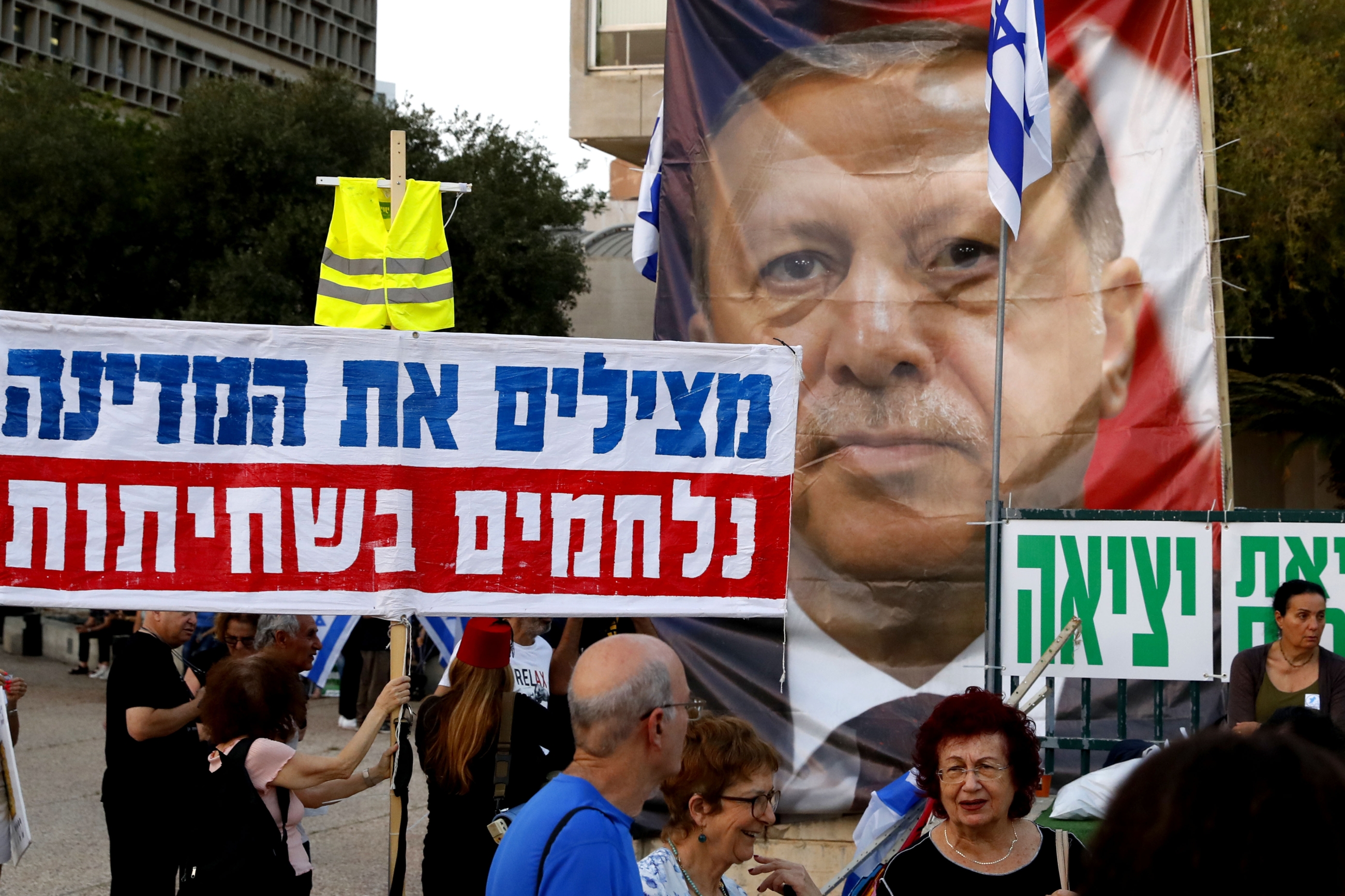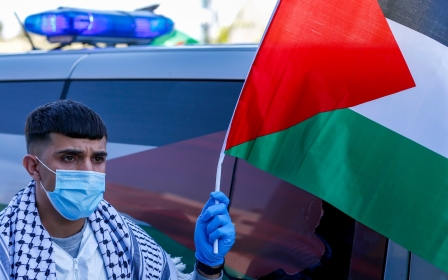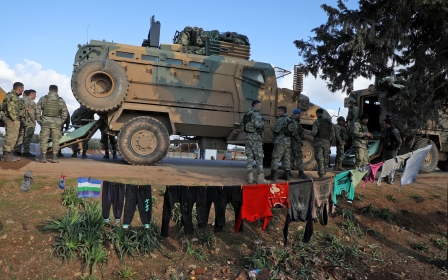Israel-Turkey relations are going the same place as Netanyahu - nowhere

Israel's tumultuous year of three elections brought up more than uncertainty domestically; it created a debate within the walls of government buildings in Ankara: would Benjamin Netanyahu, the man who has called Turkish President Recep Tayyip Erdogan "an antisemitic dictator," finally be gone?
Without question, Turkish officials hoped the answer would be "yes," believing the long-time prime minister's removal would resolve a lot of headaches they have in the region.
While on paper the two countries normalised their relationship in 2016, neither hosts the other's ambassador due to shouting matches between the two leaders over the Palestinian question.
Turkey and Israel have a shared interest against the Syrian regime and the Iranian militias in the region
- Turkish source
One thing was certain: it was impossible for Ankara to turn a page with an Israeli leader who has extended illegal settlements in the occupied West Bank, besieged and bombed the Gaza Strip, and waged a lobbying war against the Turkish government in Washington.
Turkish officials, speaking anonymously to Middle East Eye, also felt that they would need to do something about Israeli efforts to form an anti-Turkey alliance in the Eastern Mediterranean with tacit American support.
New MEE newsletter: Jerusalem Dispatch
Sign up to get the latest insights and analysis on Israel-Palestine, alongside Turkey Unpacked and other MEE newsletters
Israel, Cyprus, Greece and Egypt plan to carry Israeli gas through a pipeline to Europe, undercutting Turkish interests in the process by declaring their own exclusive economic zone, squeezing Turkey into a tiny bit of naval territory.
Ankara in 2016 made enquiries as to ways to get the Israeli government on board for a rival project that would carry the gas to Turkish pipelines, but clashes related to Palestine and the coup attempt in Turkey in July that year killed the project.
Shared interests
Turkey's troubles with Israel don't end there. Ankara is also under pressure from the US Congress, where a set of angry senators are pushing several draft laws to punish Turkey over a set of issues from the Turkish offensive in northeastern Syria to the Armenian genocide.
Officials believe Netanyahu's lobbyists are either behind or enablers of several pieces of anti-Turkey legislation.
In private conversations with notable Turkish citizens, Netanyahu is said to have expressed his willingness to patch things up with Turkey. But his policies in Palestine leave no room for a proper settlement with Erdogan, who sees them as inherently evil and against the very existence of Palestinians.
This is why former army chief Benny Gantz's Blue and White political alliance spelled good news for Turkey. Turkish officials knew that Gantz was also a hawk when it came to the Gaza Strip, yet they were hopeful that he would show at least some restraint since he needed the support from Arab-dominated parties to become Israel's premier.
"Turkey and Israel have a shared interest against the Syrian regime and the Iranian militias in the region. There are some common areas that both governments could work with," a Turkish source close to the government said.
"Better relations with Israel would also hinder anti-Turkey efforts in the US Congress."
Nihat Ali Ozcan, a senior foreign affairs expert at Ankara-based think tank TEPAV, noted that Turkish-Israeli trade and tourism have continued to grow in the last few years - before the coronavirus pandemic brought things to an abrupt halt.
"Both countries are looking for a balance in their relationship," he said. "Each country has ideological baggage on Palestine, and they don't look like [they are] changing their stance any time soon."
Since 2008, the volume of Turkish-Israeli trade has increased by 60 percent, reaching $5.6bn, while Israeli tourist arrivals passed half a million in 2019, a 28 percent jump year on year.
Nur Ozkan Erbay, Ankara representative for Turkish government-aligned newspaper Daily Sabah, believes a Gantz premiership would only have had an impact on the surface.
"It wouldn't have introduced any detente in the bilateral relations. Some softening? Yes. But I wouldn't have held my breath for any close partnership," she said.
Missed opportunity
However, Turkish officials' hope for correcting the course in bilateral relations was dashed by the recent news ushering in a Netanyahu-Gantz unity coalition. The leaders agreed to establish a government in which Netanyahu would be the prime minister first, with Gantz set to take up the role 18 months later.
The coalition agreement included an internationally controversial clause: Netanyahu could pass legislation to annex chunks of the West Bank beginning on 1 July, on the condition that Washington supports the move. The US State Department earlier this week announced its blessing for such legislation.
Both sides will continue to use each other in domestic politics to galvanise support for their broader agenda
- Nihat Ali Ozcan, analyst
That triggered a Turkish response.
Last week, the Turkish foreign ministry condemned the provision related to the annexation as "an extremely dangerous" step.
"We believe that such a grave step, which would trample international law and weigh on the collective conscience of humanity, will not be accepted or supported by any member of the international community having a sense of justice and responsibility," the statement said.
Ozcan says both countries are likely to maintain their ties as they are, with some marginal ups and downs, because in terms of trade and cooperation they still need each other.
"And both sides will continue to use each other in domestic politics to galvanise support for their broader agenda," he said.
Middle East Eye delivers independent and unrivalled coverage and analysis of the Middle East, North Africa and beyond. To learn more about republishing this content and the associated fees, please fill out this form. More about MEE can be found here.





